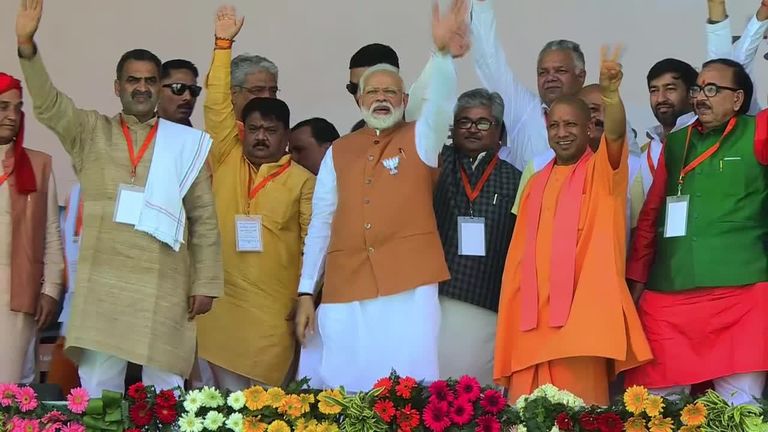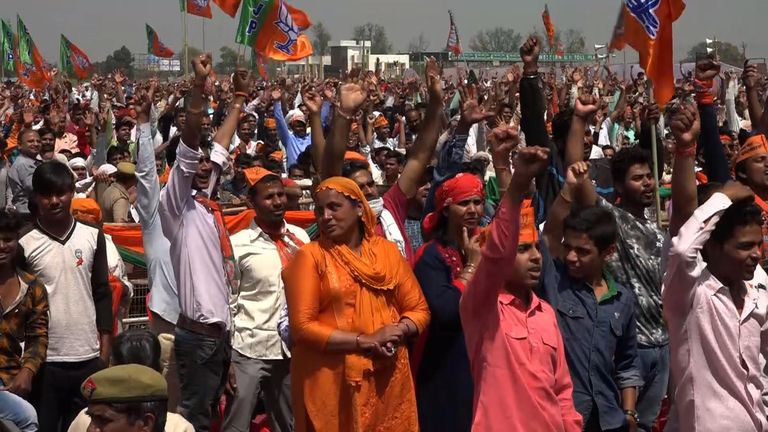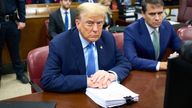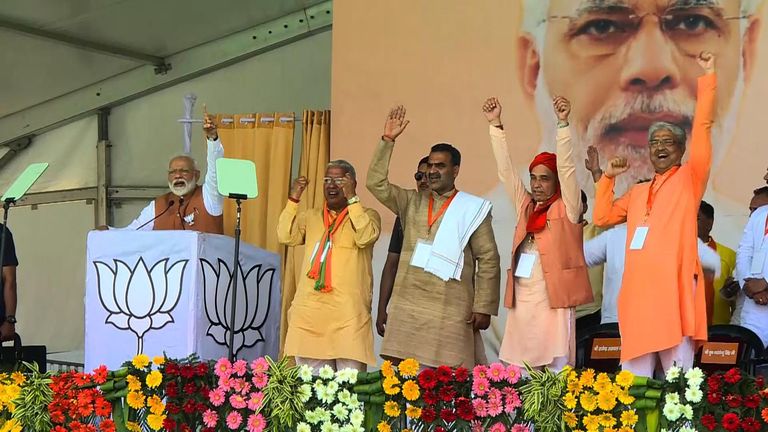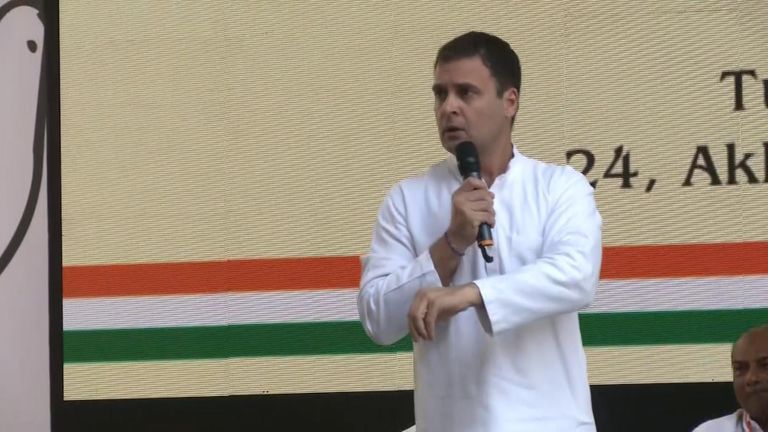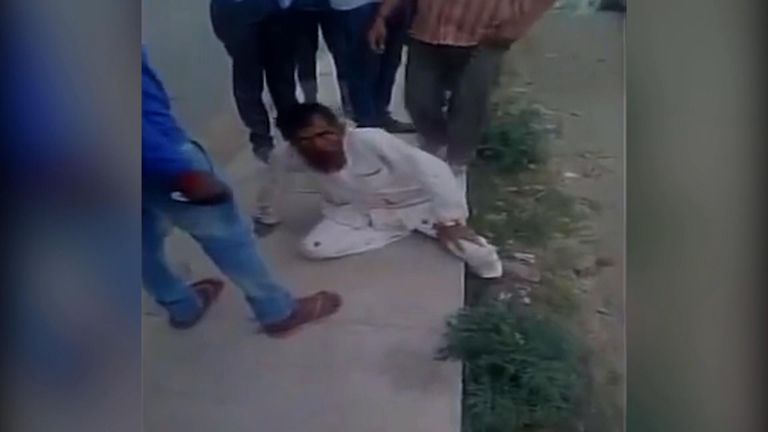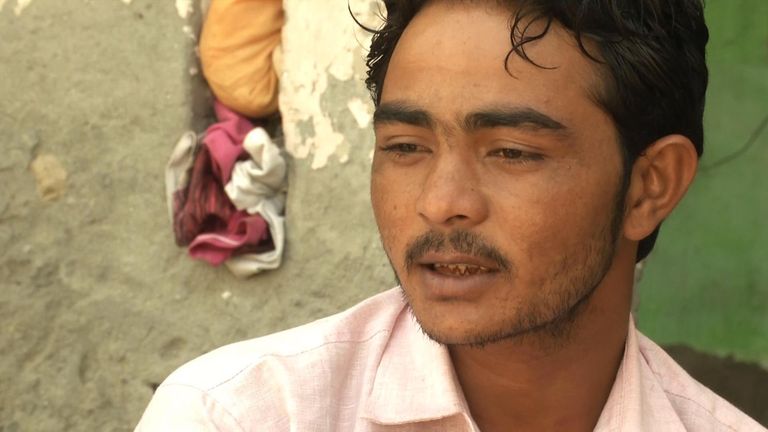India elections: Fears of lynch mobs and violence if Narendra Modi is re-elected
The world's largest elections start on 11 April and some are worried divisions will increase if India's incumbent PM wins again.
Monday 8 April 2019 02:37, UK
India is in the grip of election fever, with 900 million registered voters preparing to go to the polls.
The general election will be the world's largest democratic exercise, with voting beginning on 11 April.
Voters are electing lawmakers for the 545-member lower house of parliament, or Lok Sabha.
The country is so large that voting will take place in seven phases over five weeks, with initial results expected on 23 May.
Under the banners of national security and Hindu nationalism, current prime minister Narendra Modi is hoping for another landslide victory with the Bharatiya Janata Party (BJP).
In 2014, he swept to power with a historic win - breaking the Congress Party's grip on India.
This year, the strongman leader, who refers to himself as the country's watchman and protector, claims he will snatch an even bigger majority.
For the party faithful, he's the only man for the job.
"He's one of the strongest leaders which we have ever witnessed", gushes supporter Amit Parashar, "[He] can take our country to greater heights."
However, critics have expressed concern - saying that while Mr Modi's nationalist mantra empowers the Hindu majority, it is isolating minorities.
The opposition Congress leader, Rahul Gandhi, claims hatred and lynch mobs have spread unchallenged under Mr Modi.
Harsh Mander, director of the Centre for Equity Studies, agrees - saying their research has found the majority of vigilante attacks on Muslims by Hindu mobs in the name of protecting cows have happened in the last five years.
Cows are sacred to Hindus and one of the prime minister's signature policies has been protecting them.
While Mr Modi has publicly denounced the vigilante violence, Mr Mander claims perpetrators often act with impunity.
"I don't think India has ever been as bitterly divided," he told Sky News. "The extent to which hate has not just been normalised but it's been legitimised and validated in a way that we have never seen before."
Figures released by IndiaSpend in 2018 found communal violence increased 28% over the three years to 2017.
Analysis of home ministry data showed 822 incidents were recorded that year - short of the decade high of 943 listed in 2008 during the United Progressive Alliance government led by the Congress party.
In 2017, 55-year-old Muslim Pehlu Khan and his sons were beaten by a mob for trading cows.
They were returning from a market when a gang attacked them. Pehlu died of his injuries.
His son Irshad told Sky News: "At the beginning there were about nine or 10 people but then more joined in to beat us up. They just kept hitting us.
"Their intentions were clear: these are Muslims, these mullahs will never change until they are dead. Kill them and throw petrol or diesel on them and burn them."
The others said they only escaped alive because the police intervened.
Two years on, the family is still fighting for justice and Irshad fears violence against Muslims will rise if Mr Modi wins again.
"We are worried that if the BJP government returns, the situation will get worse not better," he said. "Even during the elections this is getting worse and it will not stop, there won't be any peace."
Despite these fears, Mr Modi will be hard to beat.
While sectarian violence has risen and unemployment is high, the economy has grown and the prime minister's campaign has been boosted by nationalist zeal sparked by the recent flare up in tensions with neighbouring Pakistan.
If he wins, Mr Modi is promising a "new India" and going into the 2019 elections, the perennially popular politician remains the favourite.
